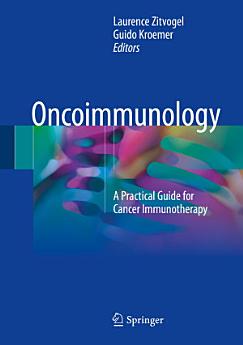Oncoimmunology: A Practical Guide for Cancer Immunotherapy
About this ebook
Immunotherapy-based approaches are now inducing long-lasting clinical responses across multiple histological types of neoplasia, in previously difficult-to-treat metastatic cancers. The future challenges for oncologists are to understand and exploit the cellular and molecular components of complex immune networks, to optimize combinatorial regimens, to avoid immune-related side effects, and to plan immunomonitoring studies for biomarker discovery. The editors hope that this book will guide future and established health professionals toward the effective application of cancer immunology and immunotherapy and contribute significantly to further progress in the field.
About the author
Guido Kroemer obtained his MD in 1985 from the University of Innsbruck (Austria) and his PhD in molecular biology in 1992 from the Autonomous University of Madrid (Spain). He is currently a professor at the Faculty of Medicine of the University of Paris Descartes/Paris V, Director of the INSERM Unit “Apoptosis, Cancer and Immunity”, Director of the Metabolomics and Cell Biology platforms of the Gustave Roussy Cancer Campus (Villejuif-Grand Paris), and a practitioner at the Hôpital Européen Georges-Pompidou in Paris. He is also Director of the Paris Alliance of Cancer Research Institutes (PACRI) and the LabEx “Immuno-Oncology”. He is best known for the discoveries that mitochondrial membrane permeabilization constitutes a decisive step in regulated cell death; that autophagy is a cytoprotective mechanism with lifespan-extending effects; and that anticancer therapies are successful only if they stimulate tumor-targeting immune responses. He has received a number of awards, including the Descartes Prize of the European Union, the Dautrebande Prize (Belgian Royal Academy of Medicine), the Léopold Griffuel Prize (French Association for Cancer Research), and The 2017 Charles Rodolphe Brupbacher Prize for Cancer Research.






